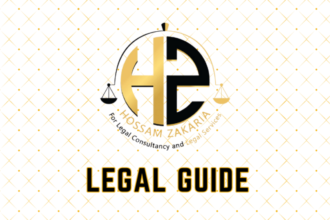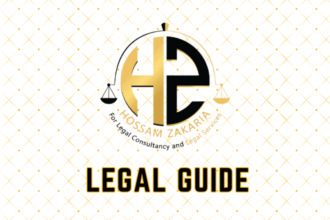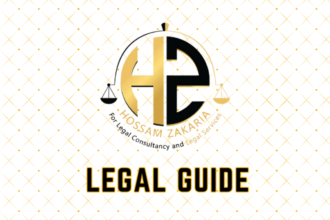Introduction: Navigating Regional Aviation Law Reform
The aviation landscape across the Middle East is undergoing an unprecedented transformation. Central to this change are the sweeping aviation law reforms recently introduced in Saudi Arabia—a development with far-reaching consequences for regional airspace management and compliance, notably impacting UAE-based operators, business leaders, and legal professionals. Amidst the drive toward Vision 2030 and increasing global scrutiny on aviation safety, efficiency, and environmental responsibility, understanding these reforms is not just a matter of regulatory awareness; it is a strategic business imperative.
With air traffic in the GCC region projected to rebound and expand post-pandemic, interconnectivity between the legal systems of Saudi Arabia, UAE, and neighboring states takes on new urgency. The UAE, a forerunner in aviation governance, must evaluate and recalibrate its frameworks in response to the Kingdom’s new Civil Aviation Law, recently promulgated by Royal Decree M/115 of November 2023. As regional airspace integration intensifies, UAE entities—whether airlines, lessors, HR teams, or in-house counsel—need clarity and actionable guidance to navigate the evolving compliance terrain. This analysis provides a detailed, practical, and authoritative roadmap for steering through these legal developments.
Table of Contents
- Overview of Saudi Arabia’s Aviation Law Reforms
- UAE’s Airspace Compliance Framework in Regional Context
- Key Legal Provisions and Practical Implications
- Comparative Analysis: Previous vs. Reformed Aviation Laws
- Alignment Challenges for UAE Operators
- Case Studies and Hypotheticals
- Risks of Non-Compliance and Updated Penalties
- Strategic Compliance Guidance and Best Practices
- Conclusion and Forward-Looking Perspective
Overview of Saudi Arabia’s Aviation Law Reforms
Legislative Foundation: Royal Decree M/115 of 2023
On November 15, 2023, Saudi Arabia enacted Royal Decree M/115, promulgating an updated Civil Aviation Law. This reform package constitutes the most comprehensive overhaul of the Kingdom’s aviation regulation in decades, targeting modernization, alignment with international conventions—including the Chicago Convention of 1944 and ICAO standards—and enhancing safety, environmental sustainability, and investor confidence.
Regulatory Objectives and Strategic Alignment
The principal objectives of these reforms are:
- Enhancing aviation safety and security to international benchmarks
- Facilitating compliance with ICAO standards
- Establishing uniform standards for airworthiness, crew licensing, and operator certification
- Streamlining dispute resolution and liability frameworks
- Introducing stringent environmental and cybersecurity mandates
Such moves directly impact the UAE’s aviation sector, which shares frequent route overlaps, operational partnerships, and must remain competitive amid Saudi’s Vision 2030 ambitions.
UAE’s Airspace Compliance Framework in Regional Context
National Regulation Anchored by Federal Decree-Law No. (20) of 2022
The UAE’s aviation legal framework is grounded in Federal Decree-Law No. (20) of 2022 on the Regulation of Civil Aviation, supported by GCAA (General Civil Aviation Authority) implementing regulations and Cabinet Resolution No. (27) of 2022. Together, these uphold strict standards for:
- Aircraft registration, airworthiness, and certification
- Operator licensing and continuing oversight
- Air navigation, pilot licensing and crew training
- Environmental obligations and noise abatement
- Incident reporting, investigation mandates, and liability rules
Collaborative treaties—such as bilateral agreements with Saudi Arabia, membership in ICAO, and the GCC Aviation Safety Agreement—frame the UAE’s engagement with evolving regional norms.
Impact of Saudi Reforms on UAE Legal Compliance
As Saudi reforms move toward ICAO conformity and introduce advanced oversight and penalty regimes, UAE-based operators with cross-border activities must track these shifts for effective compliance. This extends to HR departments managing crew rotations and in-house legal teams ensuring operational due diligence.
Key Legal Provisions and Practical Implications
Cornerstones of the Saudi Aviation Reform—Implications for the UAE
- Strengthened Safety Requirements: Mandatory real-time reporting of incidents and systemic risk-based oversight. UAE operators overflying or landing in Saudi airspace must adhere to the new advanced documentation and immediate incident notification protocols.
- Operator Licensing and Certification: Requalification requirements for foreign license holders. GCAA-issued licenses must be recognized under bilateral or multilateral reciprocity pacts, requiring HR and compliance teams to verify that all documentation is harmonized and up-to-date.
- Environmental Compliance Mandates: Noise and emission standards reinforced. UAE carriers must align flight and fleet management practices, especially with the Kingdom’s new penalties for non-compliance with environmental reporting or carbon reduction initiatives.
- Consumer Rights and Compensation: Greater clarity in passenger protection, denied boarding, delays, and cancellations. UAE airlines operating in the Kingdom must update contractual terms and customer service protocols to match Saudi legal standards, or risk sanction.
- Cybersecurity and Data Integrity: Mandatory implementation of cybersecurity policies in aviation IT infrastructure. This directly impacts airlines’ digital platforms, pushing UAE stakeholders to audit and, if needed, upgrade controls for operations within or over Saudi territory.
Practical Guidance for UAE Businesses
Executive teams should assign cross-functional compliance reviews mapping Saudi reform areas against existing UAE operations. Legal practitioners must revisit bilateral MOUs and keep watch for GCAA guidance on the reinterpretation of existing UAE-Saudi aviation protocols. HR leaders should convene training for operational and flight crew, updating them on regulatory changes, especially in emergency reporting, certification, and customer relations.
Comparative Analysis: Previous vs. Reformed Aviation Laws
| Aspect | Saudi Aviation Law (Pre-2023) | Saudi Aviation Law (2023+) / UAE Implications |
|---|---|---|
| Operator Licensing | Domestic focus, limited recognition of foreign certification | Expanded mutual recognition, but with new vetting protocols (UAE licenses need periodic reassessment) |
| Safety Reporting | Event-based, periodic reporting | Real-time, risk-based notifications; higher penalties for delay or non-reporting |
| Environmental Compliance | Basic emission/ noise mandates | Stricter ICAO-aligned standards, carbon reporting required |
| Passenger Rights | Basic delay/ baggage compensation | Specific rules on denied boarding, cancellation, refund timelines (affects UAE operators in KSA) |
| Dispute Resolution | Reliance on court litigation | Dedicated regulatory tribunals or mediation panels being piloted |
| Cybersecurity | Rarely regulated | Mandatory IT audits and data protection for aviation systems |
Suggestion: Insert a visual flowchart mapping the revised operational compliance process for UAE-Saudi flights for use in internal staff training materials.
Alignment Challenges for UAE Operators
Legal and Practical Barriers
- Regulatory Overlap: Operators risk conflicting requirements due to differing national interpretations of international conventions. Legal teams should prepare annotated matrices comparing UAE, Saudi, and ICAO standards for every operational practice (crew rest, technical reporting, security protocols).
- Data and Cyber Obligations: New Saudi mandates for cybersecurity may exceed current UAE requirements, requiring immediate IT system reviews and the drafting of cross-border data transfer agreements.
- Environment and Sustainability: Failures to meet next-generation carbon tracking or noise reporting, already stricter in Saudi, could expose UAE companies to dual penalties—both locally and when operating regionally.
- Workforce Certification: Crew qualification delays are more likely, given the complexities of mutual recognition. Proactive re-certification or dual licensing should be considered for mission-critical roles.
This legal and operational complexity underscores the need for specialist counsel and ongoing regulatory intelligence for all UAE aviation stakeholders.
Case Studies and Hypotheticals
Case Study 1: UAE Operator Facing Environmental Non-Compliance in KSA
Scenario: A UAE-registered cargo airline regularly transiting Saudi airspace is found to be deficient in its CO2 reporting according to the new Saudi standards.
Analysis: Under the new Royal Decree M/115 and aligning GCAA requirements, the operator faces dual reporting obligations. Failure to remedy the discrepancy may not only result in immediate KSA fines but also jeopardize GCAA registration or lead to restrictions under bilateral agreements.
Case Study 2: Aircrew Documentation Harmonization
Scenario: An Emirati pilot’s UAE-issued license, previously accepted by Saudi authorities, now requires supplemental training and recertification modules to continue operating flights into Saudi airports.
Guidance: HR needs to proactively coordinate continuing education, leveraging GCAA and Saudi aviation authority (GACA) cross-recognition channels, to avoid operational disruptions and regulatory infractions.
Case Study 3: Data Breach Reporting Across Borders
Scenario: A major UAE airline experiences a cybersecurity incident affecting both its Dubai and Riyadh operations.
Insight: Under the Saudi reforms, mandatory incident notification to the Saudi regulator is tied to strict timelines, and failure to do so can result in heavy penalties and operational suspension in the Kingdom. UAE compliance teams must deploy cross-jurisdictional response playbooks to manage disclosures, forensics, and communication in both countries.
Risks of Non-Compliance and Updated Penalties
| Violation Type | Previous Sanction | Saudi Reform (2023+) Penalty | UAE Enforcement Implication |
|---|---|---|---|
| Safety Reporting Lapses | Administrative warning, minor fine | Up to SAR 1 million fine, potential suspension | Possible revocation of GCAA flight permissions for repeated lapses |
| Environmental Reporting Non-Compliance | Rarely enforced | SAR 250,000–500,000 fine, temporary bans | Impacts renewal of UAE operational licenses |
| Pilot License Irregularities | Case-by-case review | Immediate grounding, ban from Saudi territory | Impact on employer liability and insurance in the UAE |
| Cybersecurity Incident Failure | Unregulated | Fine plus public notice, reputational damage | Trigger for GCAA data privacy review, reputational risk |
Suggestion: Deploy a compliance checklist visual for UAE operators highlighting mandatory due diligence steps before cross-border operations into Saudi Arabia.
Strategic Compliance Guidance and Best Practices
Recommendations for UAE Businesses and Legal Teams
- Integrated Compliance Programs: Establish multi-jurisdictional compliance committees to regularly audit all operational protocols against Saudi and UAE regulatory standards, emphasizing airspace safety and environmental compliance.
- Proactive License and Training Mapping: Maintain a register of all crew members’ certifications, renewal dates, and mutual recognition status, with workflows that anticipate requalification demands as reforms continue to unfold.
- Data Security and Incident Response Drills: Update cybersecurity policy frameworks and run cross-border incident simulations encompassing both GCAA and Saudi mandates.
- Contractual Due Diligence: Re-examine existing commercial contracts, especially with Saudi partners or clients, ensuring clauses reflect the new passenger protection, liability, and dispute resolution standards.
- Continuous Legal Monitoring: Retain counsel for real-time tracking of regulatory updates from official Saudi and UAE publications (such as the Saudi Aviation Gazzette and UAE Federal Legal Gazette). Subscribe to GCAA advisories and legal consultancy firm updates.
Process Flow Diagram Recommendation
A process flow diagram may be included, mapping the end-to-end compliance process from pre-flight documentation, real-time oversight, incident reporting, and post-operation audits for UAE airlines on Saudi-bound routes.
Conclusion and Forward-Looking Perspective
Saudi Arabia’s 2023 aviation law reforms are recalibrating the standards of safety, environmental stewardship, and operational integrity across Gulf airspace. For UAE organizations—whether airlines, HR teams, legal practitioners, or cross-border employers—this regulatory shift necessitates immediate, strategic responses. Adopting robust compliance programs, advanced training, and contract reviews will not only avert penalties but also bolster reputation and operational resilience in a new era of regional legal harmonization.
As the Gulf’s aviation laws evolve in step with global best practices, forward-thinking UAE entities should position themselves at the cutting edge—investing in legal intelligence, integrating compliance into core processes, and fostering ongoing collaboration with regulatory authorities both at home and abroad. These reforms will ultimately contribute to a safer, more stable, and sustainable aviation sector, reinforcing the UAE’s role as a leader in international airspace compliance and regulatory excellence.
Best Practice Suggestion: Regularly update internal legal and compliance manuals, hold quarterly risk workshops on aviation standards, and ensure ongoing engagement with specialised legal advisors to pre-empt emerging compliance challenges.



